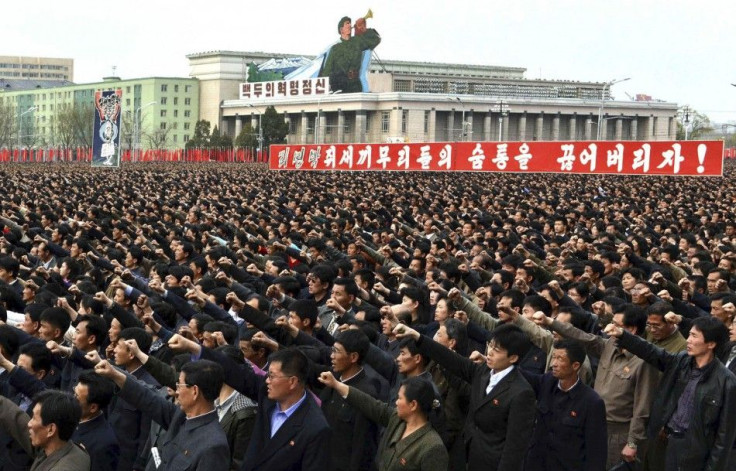North Korea May Have Enough Enriched Uranium For Up To Six Nuclear Bombs: Expert

North Korea may have enough large stocks of weapons-grade highly-enriched uranium for up to as many as six atomic bombs, according to a report by South Korea’s Yonhap news agency, amid fears that Pyongyang is planning yet another nuclear test.
Yonhap notes that, following two nuclear tests in 2006 and 2009, which dwindled their plutonium stock, North Korea appears to be engaged in uranium-enrichment activities at its nuclear complex in Yongbyon. By late 2010, North Korea admitted that it had a uranium enrichment plant but claimed it was designed solely for peaceful purposes.
A South Korean nuclear expert, whom Yonhap did not identify, told the agency that North Korea has an estimated 26 million tons of natural uranium deposits. Assuming that North has been enriching uranium since 2009 (the time of its last nuclear test); it could have enough enriched material for between three and six nuclear bombs.
Meanwhile, South Korea, Japan and Western nations are concerned that North Korea is preparing another nuclear test, following the failed long-range rocket launch in the middle of April.
Yonhap stated that this potential third test could involve a device using highly-enriched uranium for the first time.
The South Korean nuclear expert estimated that North Korea might have spent at least $6.58 billion on its nuclear weapons program thus far.
He speculated that if this estimated expenditure was converted into the price of Chinese corn, North Korea could purchase 19.4 million tons of corn, enough to feed the North's whole population for eight years.
Separately, South Korean Transport Ministry officials believe that North Korea has been jamming its global-positioning system (GPS) navigation network, affecting at least 250 flights at the Incheon international airport since Saturday.
The flights, which involved both domestic and foreign airlines, were forced to use alternative navigation systems.
Kim Choon-oh, a South Korean transport official, told Agence-France Presse that there was no serious threat to the safety of flights because planes are using other navigation devices.”
South Korea, which technically remains at war with the North since the end of the Korean War almost sixty years ago, has accused Pyongyang of jamming its signals before, in August 2010 and March 2011.
© Copyright IBTimes 2024. All rights reserved.











